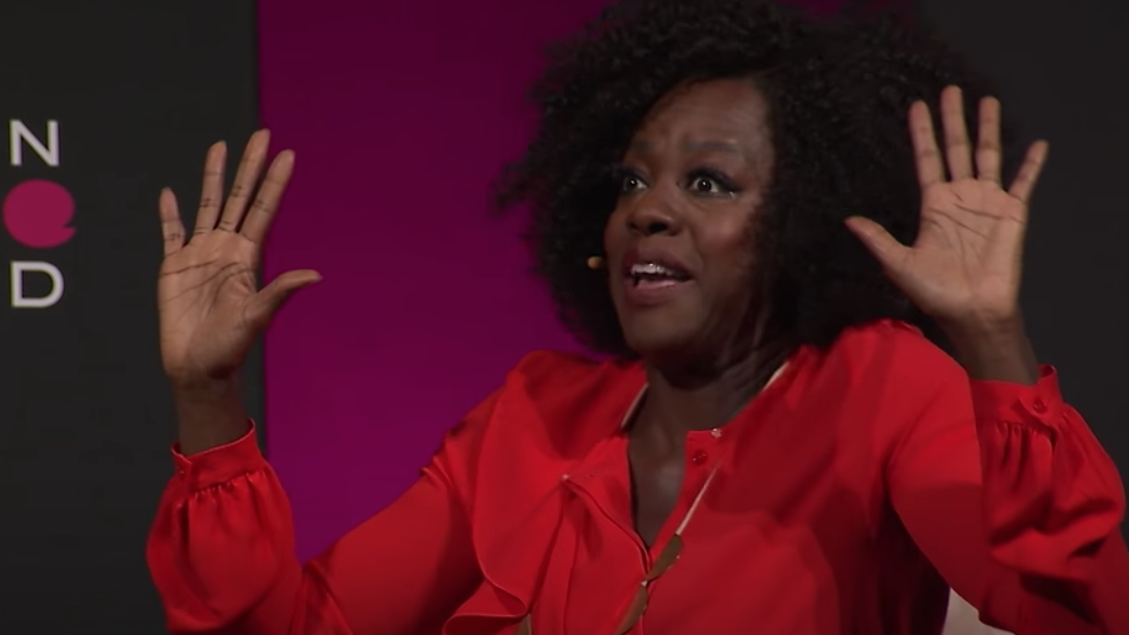Award-winning actress Viola Davis
highlighted Hollywood's racism in an interview that has resurfaced on Twitter and garnered a huge response online.
During a 2018 interview at a Women in the World event, Davis spoke passionately about how her Emmy, Tony and Oscar wins have not led to the kind of compensation seen by white actresses with similar accolades.
Davis spoke on a variety of topics during the 30-minute conversation with Tina Brown, but it was Davis' comments on racism, sexism and workplace unfairness that caught the eye of the internet on Wednesday.
“I got the Oscar, I got the Emmy, I got the two Tonys, I’ve done Broadway, I’ve done off-Broadway, I’ve done TV, I’ve done film, I’ve done all of it. I have a career that’s probably comparable to Meryl Streep, Julianne Moore, Sigourney Weaver. They all came out of Yale, they came out of Juilliard, they came out of NYU," the 54-year-old said.
"They had the same path as me, and yet I am nowhere near them. Not as far as money, not as far as job opportunities, nowhere close to it. … But I have to get on that phone and people say 'You’re a Black Meryl Streep. … There is no one like you.' OK, then if there’s no one like me, you think I’m that, you pay me what I’m worth,” Davis continued.
Viola Davis ain’t playin with y’all.
Someone give @violadavis her flowers.
Queen. pic.twitter.com/BzXhqvbUjL
— Jimmy Folino – Black Lives Matter (@MrNiceGuy18_58) June 30, 2020
The clip was liked thousands of times and shared by a number of Black actresses who said they had similar struggles of getting fair compensation.
This!!!!!! All day THIS!!!! ???????????????????????????????? https://t.co/z0Bq84x2Lp
— Gabrielle Union (@itsgabrielleu) July 1, 2020
For decades, Black actresses have complained about how they are treated by directors, producers and Hollywood heavyweights, BBC reported.
Davis herself has spoken about Hollywood's issues with diversity for years. During her powerful Emmy speech in 2015, she spoke about the lack of opportunities available for Black actresses, even ones who had awards and decades of experience under their belts.
"The only thing that separates women of color from anyone else is opportunity. You cannot win an Emmy for roles that are simply not there,” she told the crowd.
A 2017 article from Refinery29 listed statistics about the state of financial equality in Hollywood. There were no Black women on the 2016 Forbes list of the world’s 10 highest-paid actresses, and on a longer list highlighting the pay rates of TV talent from Variety, Black women are few and far between.
Despite the success of Black-ish, Tracee Ellis Ross was the only Black woman on the 2016 Variety list for the highest-paid television actors and actresses in comedy. She spent years being paid about $80,000 per episode while Kaley Cuoco, a white actress on the Big Bang Theory, made $1 million each episode.
Kerry Washington, Davis and Taraji P. Henson were the only Black women in the list's drama category. Washington and Davis made about $250,000 each episode for their hit shows Scandal and How To Get Away With Murder while Henson brought in $175,000 per episode for Empire. These numbers are paltry compared to most major TV actors, who make at least half a million per episode.
In her book Around the Way Girl, Henson wrote about the disparities in payment and treatment between her, Brad Pitt and Cate Blanchett for the film The Curious Case of Benjamin Button.
“There are way more talented black actresses than there are intelligent, meaningful roles for them, and we’re consistently charged with diving for the crumbs of the scraps, lest we starve. I knew the stakes: no matter how talented, no matter how many accolades my prior work had received, if I pushed for more money, I’d be replaced and no one would so much as a blink,” Henson wrote.
Last year, Gabrielle Union spoke to USA Today about how Hollywood's problems with race are self-perpetuating. Black women are denied access to roles, making it more difficult to build their resumes and secure higher pay. Since the vast majority of Hollywood executives are white, Black actresses continue to be left out and forced to battle each other for the few roles that are available.
“Little by little we’re communicating, and women of color, specifically black women, are like, ‘Oh, hell nah.’ We are so woefully underpaid, under-appreciated, disrespected," Union said. "Based on the numbers that I know that black women, Latinas, Asian women, indigenous actors are making, there is no other logical reason why we are paid what we are paid versus what our contemporaries are paid who are lacking melanin."
During the press run for his movie Widows, Black director Steve McQueen told the Associated Press about how unfair it was that Davis had to wait so long to get her shot at Hollywood stardom.
“She can only be judged by the films she gets to do. Don’t forget: she could not really make a living in film because no one was giving her any roles. She was not given an opportunity to fulfill her craft. So she had to go on television. Viola’s 53 years old. She should have a vast body of work by now,” McQueen said.
